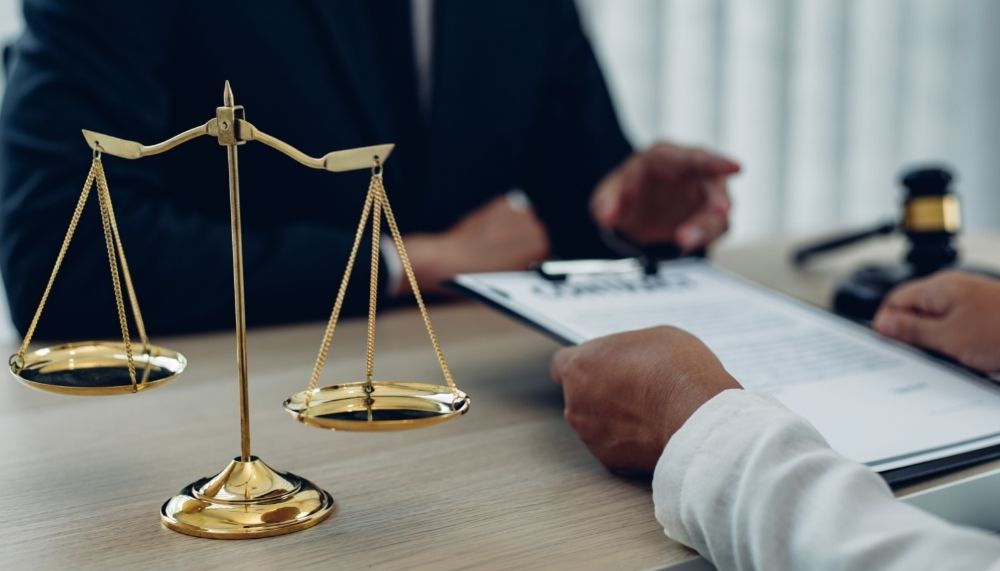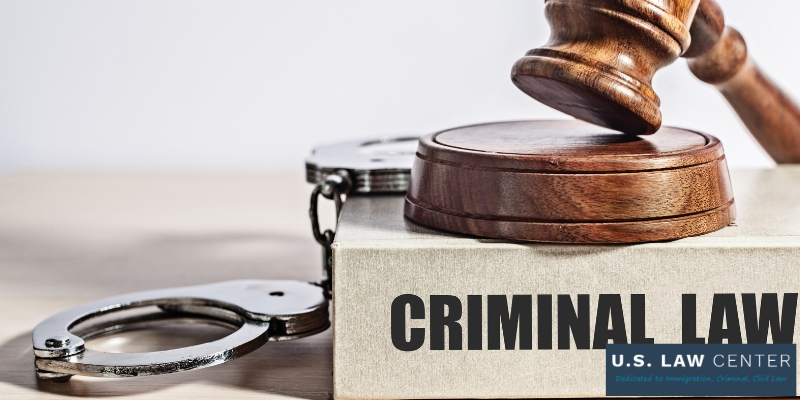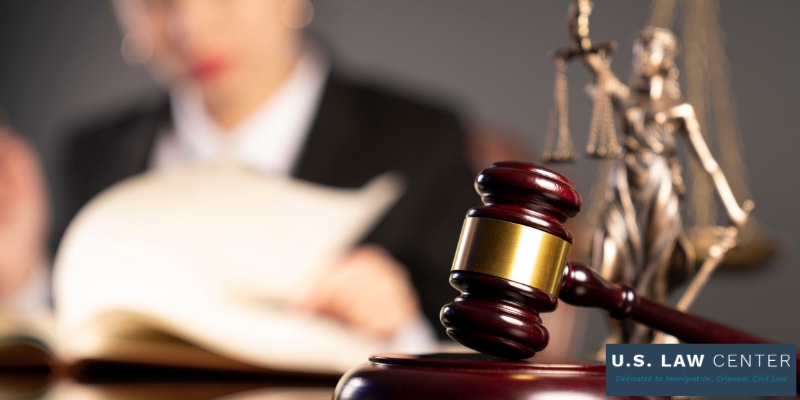Riverside Criminal Lawyer
California’s criminal justice system is designed to strengthen public safety by deterring crime, punishing individuals convicted of committing crimes, and reintegrating them into their communities. While this system can be successful in taking dangerous criminals off the streets, it is not free from bias or error and does fail. Unfortunately, far too many people are convicted of crimes they did not commit and have their freedom taken away for years or even decades. After fulfilling the terms of their sentence, an individual with a criminal record still faces a variety of hardships, such as difficulty obtaining affordable housing, enrolling in higher education, or progressing in their career.
If you are charged with a crime, it is crucial to secure legal representation as soon as possible to protect your rights and achieve the best outcome in your case. Review the information below to learn more about criminal defense, then contact U.S. Law Center for a consultation. We can explain the charges filed against you, investigate every aspect of your case to create a strong defense strategy, and help you avoid or minimize the consequences of a conviction.

How Are Crimes Charged in California?
California state criminal sentencing law defines certain crimes and offenses and specifies the appropriate criminal and administrative penalties that should be imposed on individuals convicted of committing them. The law classifies offenses into three main categories based on their level of severity and the recommended penalties for conviction:
- FelonyFelonies are the most severe type of crime and may be punishable by incarceration in state prison or incarceration in county jail for more than one year, as well as fines, post-conviction restrictions, and other penalties. This category includes offenses that are considered serious and/or violent, such as murder, rape, assault, robbery, and burglary of a residence. Penalties depend on the nature of the crime, the offender’s criminal history, and the court’s discretion. Many felony crimes have low-term, mid-term, and high-term prison sentence options, and the judge will determine which is appropriate based on the specific facts of the case.
- MisdemeanorMisdemeanors are a less severe offense, and offenders are typically sentenced to imprisonment in county jail for less than one year, probation, a fine, or a combination. Common misdemeanors include petty theft, public intoxication, disorderly conduct, solicitation of prostitution, simple drug possession, and domestic battery. Even if the state statute classifies a crime as a misdemeanor, the presence of specific aggravating factors can upgrade the charge to a felony, including property damage or injury to another person, the targeting of certain individuals (i.e., children or police officers), and use of a weapon to commit a crime.
- InfractionUnlike felonies and misdemeanors, infractions are considered violations of the law rather than crimes. This is the least severe type of offense and is generally punishable by a fine. Most infractions involve unlawful operation of a motor vehicle, such as speeding, running a red light, making an illegal U-turn, or inappropriate parking. If an individual is charged with an infraction, the state is not required to appoint a public defender to represent them, and they do not have the right to a jury trial. Instead, the case is reviewed in a bench trial presided over by a judge. If the defendant is convicted, the court cannot impose a jail or prison sentence or probation.
Under California criminal law, certain crimes are considered “wobblers,” meaning they can be charged as misdemeanors or felonies based on the circumstances of the offense. Common wobbler crimes include sex offenses, domestic violence crimes, DUI offenses, and fraud. When filing a charge against an alleged offender, the prosecutor decides how to charge an offense based on the following factors:
- The severity of the crime
- The strength of the case
- The defendant’s age
- The defendant’s prior criminal record
- The defendant’s level of cooperation with law enforcement
- Whether the defendant is eligible for probation
- The likelihood that they will continue to commit crimes
Although a prosecutor may initially charge a wobbler crime as a felony, judges are not bound by this decision. Instead, they have relatively broad discretion when charging crimes and will consider both aggravating and mitigating factors when making sentencing decisions. The prosecutor will focus on aggravating factors that increase the defendant’s culpability for the offense and increase the potential sentence, while the defendant’s attorney will work to identify any mitigating factors that would support more lenient sentencing. Mitigating factors may include a lack of prior criminal record, a defendant who plays a minor role in the offense, or acknowledgment of wrongdoing and/or restitution to victims at an early stage of the case.
What Happens After Being Arrested for a Crime?
After law enforcement officers are notified that a crime has occurred, they detain the individual suspected of committing the crime, arrest them, and book them into county jail or release them on bail. The suspect is then charged with the crime, and the case moves on to prosecution in criminal court to determine a final verdict. Trial courts are funded by the state, and district attorneys appointed by the local government prosecute the case. Every person charged with a crime has the right to hire an attorney and may obtain legal representation from a public defender or a private criminal defense attorney.
At trial, a judge will examine the prosecutor’s case and all evidence and arguments presented by the defendant’s attorney to determine the defendant’s guilt. If the defendant pleads guilty or is found guilty, the judge decides on the appropriate penalties. Depending on the severity of the offense and whether it is charged as a felony or misdemeanor, a convicted defendant may be required to serve time in state prison or county jail, pay fines, or both. If they are not incarcerated, they may have other restrictions placed upon them, such as probation or parole.

Do I Need an Attorney?
The only way to ensure you have the best chance of avoiding a conviction or minimizing the impact a conviction may have on your life is to hire a Riverside criminal defense attorney immediately after your arrest. An attorney provides in-depth knowledge of state criminal statutes, the resources to mount the most effective defense, and experience handling every aspect of a criminal trial. They can help you understand the charges filed against you, the potential consequences of a conviction, and how to approach the case for a favorable outcome. They also have relationships with local prosecutors and judges, meaning they know how these specific individuals work and the most effective ways to navigate the court process.
An attorney can thoroughly investigate the prosecution’s case against you, craft a formidable defense strategy, and guide you through every stage of the criminal justice system. This includes analyzing evidence that refutes the prosecution’s case, coordinating expert testimony from witnesses, identifying mitigating factors that could reduce sentencing, and negotiating a plea deal for lesser charges. An attorney can also discover any official misconduct or violations of your rights that could result in case dismissal. Such misconduct can occur by police, prosecutors, or both and includes witness tampering, concealing or fabricating evidence, and misconduct during interrogations or trial.
Expert Defense for All Criminal Charges
U.S. Law Center provides comprehensive, individualized, and compassionate legal representation for clients accused of various crimes, including:
- Property Crimes – vandalism, trespassing, arson, burglary, theft/larceny, grand theft, petty theft, motor vehicle theft, shoplifting, and robbery
- Financial Crimes – bribery, forgery, extortion, embezzlement, tax evasion, money laundering, racketeering, identity theft, and various types of fraud (banking, credit card, securities, mail, computer, internet, health care, mortgage, insurance, etc.)
- DUI Crimes – first, second, or third offense misdemeanor DUI; felony DUI; and DUI with injury (misdemeanor or felony)
- Drug Crimes – unlawful possession or use of a controlled substance; possession of a controlled substance with intent to sell or distribute; and drug cultivation, manufacturing, distribution, sale, transportation, and trafficking
- Weapons Crimes – unlawful ownership, possession, or use of firearms by certain individuals (including convicted felons); carrying firearms in prohibited locations (such as a school or government building); possessing illegal classes of weapons, accessories, or ammunition; brandishing firearms; firing them in occupied buildings; and using them to commit crimes
- Violent Crimes – assault, aggravated assault, battery, robbery, carjacking, kidnapping, mayhem, murder (first or second degree), attempted murder, manslaughter (voluntary, involuntary, or vehicular), domestic violence, and certain types of sex crimes.

FAQs About Riverside, CA Criminal Laws
What is the goal of a criminal defense lawyer?
Anyone accused of a crime in the U.S. is considered innocent until proven guilty and has the right to secure legal representation when they are charged with a crime. The primary goal of a Riverside criminal lawyer is to protect their clients’ rights and advocate for their interests during every stage of a criminal case. After you hire an attorney to handle your case, they will conduct a thorough investigation of the alleged crime to determine the best defense strategy for fighting against the charges you face and reducing the penalties of a potential conviction.
What does a criminal lawyer do?
If you are accused of a crime, a criminal defense attorney can help you by:
- Reviewing the circumstances of your arrest to ensure your rights were not violated
- Analyzing the prosecution’s evidence to identify weaknesses
- Collecting evidence to refute the prosecution’s case
- Building a strong defense strategy tailored to your unique situation
- Assessing the potential penalties of a conviction and the likelihood of the judge imposing them
- Advising you on the possible consequences of a plea, conviction, or criminal record
- Negotiating plea deals with prosecutors
- If your case goes to trial, convincing the jury that the prosecution failed to meet the burden of proof
- If you are convicted, helping you seek post-conviction relief to minimize penalties
How much does a criminal defense lawyer cost?
Criminal defense attorneys typically charge hourly rates for their services, and they set these rates based on the number of years they have spent practicing law, their expertise, their courtroom experience, and their location. In general, the hourly rate for criminal defense attorneys in California ranges from $300 to $500 per hour.
If you are hoping to avoid attorney fees by working with a public defender, know that these legal professionals often juggle high volumes of cases at once and simply do not have the time or resources to provide the same level of representation that private attorneys can offer. In most cases, the price of hiring an attorney is significantly lower than the price of a conviction.
What should you ask when hiring a criminal lawyer?
Before hiring a Riverside criminal defense attorney, ask these questions:
- How long have you practiced criminal law?
- What are your educational and professional certifications?
- Do you handle cases on your own or with help from paralegals or junior associates?
- What is your success rate?
- Have you handled cases similar to mine? If so, how did you resolve them?
- What are the strengths and weaknesses of my case?
- What defense strategies do you think would be effective?
Secure Legal Representation Today to Protect Your Future
Facing criminal charges can be confusing, intimidating, and downright terrifying. Unfortunately, many individuals accused of crimes plead guilty because they do not know their rights or how to explore the different avenues available to them for fighting back against their charges. If you are charged with a crime, never plead guilty without consulting an attorney first. During your arrest, exercise your right to remain silent, so you do not unintentionally incriminate yourself, respectfully follow the instructions of law enforcement, and complete the booking process. Then, use your phone call to contact U.S. Law Center.
A criminal conviction can significantly impact nearly every aspect of your life for years to come. The best strategy for protecting your rights, your freedom, and your future is to hire a Riverside criminal lawyer immediately to get started on your defense. Our expert attorneys can ensure you understand the nature and penalties of the charges you face and help you effectively navigate the criminal justice system to obtain the best results in your case.
Making Immigration Law Work For You
The U.S. Law Center is a nationwide, full-service immigration law firm providing large corporations, small businesses and individuals with a full range of immigration processing and placement services.
866-665-1696
